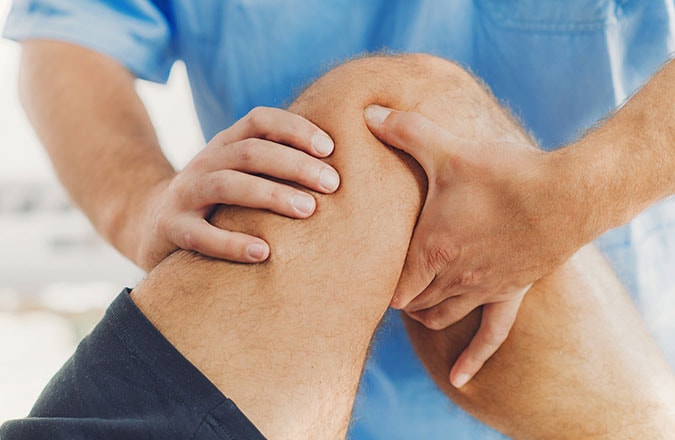Physiotherapy is a part of healthcare management that assists in restoring function and movement when a patient is affected by an illness or injury. Physiotherapy can be extremely beneficial for various bone, muscular and joint issues, especially pain management. It is equally effective in treating chronic pain that can help patients fight pain and lead a healthy life. Unfortunately in India, physiotherapy doesn’t have a streamlined referral system, even though it can support the promotion of health, prevention of injury and help in rehabilitation.
Physiotherapy Remains an Underrated Profession
Being an allied part of the healthcare system, physiotherapy aims to restore and maintain maximum physical function along with improved health throughout life. In majority of the settings in India, physiotherapy is offered in combination with various other treatments and therapies.
However, in comparison to the western world, there isn’t a proper referral system for physiotherapy in India. Though medical practitioners in India are well aware of its applications in paediatrics, musculoskeletal, cardio-respiratory, sports, and neurological conditions, they lack the awareness of the recent advances being made in physiotherapy. Physiotherapy has made excellent progress when it comes to chronic pain, transplantation, geriatric conditions, cancer, and women’s health. Other than that, the role of physiotherapy in different phases of pulmonary and cardiac rehabilitation of patients is also not given due attention in India.
In India, the common scenario for receiving physiotherapy services is a prescription from a medical practitioner. This, in turn, creates a negative idea about the competence of physiotherapist professionals, which leads to underutilisation of resources and skills and further impeding quality of care. It is important to understand that physiotherapy is an autonomous profession and the professionals in physiotherapy are capable enough to determine the right treatment for patients based on their years of education and training.
Physiotherapy is Effective in Chronic Pain Management
Today, in the present living conditions, majority of health issues emerge from unhealthy habits and bad lifestyles. With COVID-19 confining people to their homes, chronic pain issues are on the rise because of lack of physical activity and more time being spent in front of computers. Physiotherapy works by reversing the damage to the affected area and rebuilding strength, restoring functionality and guiding the patient towards a healthy lifestyle and proper movements of various body parts.
Different methods are employed by physiotherapists to mobilise the soft tissues in the affected area to increase flexibility and restore elasticity. For centuries, manual therapy techniques like gentle massages have helped in improving local circulation in the area that is being treated. Lymphatic massage has gained immense popularity over the past few years owing to its effectiveness in reducing swelling and pain in post-mastectomy patients. Joint mobilisation is another technique commonly used to loosen the collagen fibres present in the joints. This procedure helps patients to regain joint mobility and get relief from chronic pain.
Other than manual techniques, many physiotherapists also make use of relaxation techniques such as meditation, yoga and pranayama to relax the nervous system. When the nervous system is relaxed, it induces better sleep which in turn helps to relieve pain.
In the case of physiotherapy, the exercise programs are tailor-made to suit the individual requirements of patients. The exercises usually include a range of motions along with strengthening and stretching movements to improve strength, mobility, and muscle strength. The exercises helps to alleviate beta-endorphin levels in the body, which improves mood and reduces pain.
Conclusion
While physiotherapy adopts a holistic approach to chronic pain treatment and guides patients to a healthy life, the role of physiotherapist professionals in healthcare delivery requires more awareness. Backed by scientific evidence, physiotherapy can reform our healthcare system by actuating early recovery, treat numerous aches, syndromes and conditions, and support improved quality of life. An effort must be made to educate the various health professionals via various associated professional bodies and other channels on the benefits of various types of physiotherapies available currently so that patients are benefitted in early and full recovery from their illness.
